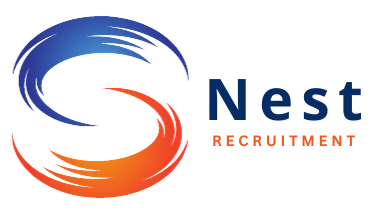Staffing Australia's General Practices: Why GPs and Nurses Need Recruitment Support Now More Than Ever
In recent years, Australia’s general practice (GP) sector has faced a perfect storm of rising patient demand, workforce shortages, and increased pressure on GPs and nurses. From regional clinics to city-based practices, providers are stretched thin—managing not just complex health needs but also their own mental and professional burnout. In this climate, recruitment support has moved from being a luxury to a lifeline.
Specialist agencies like Nest Recruitment are stepping up to meet this need, offering tailored staffing solutions that keep practices running smoothly while ensuring patients receive high-quality, uninterrupted care.
The healthcare pressure cooker: What’s fuelling the staffing crisis?
Australia’s healthcare system is undergoing seismic shifts. The COVID-19 pandemic exposed long-standing weaknesses—particularly in the GP workforce. Now, the aftershocks continue to ripple through general practice, creating a challenging environment for recruitment and retention.
According to the Royal Australian College of General Practitioners (RACGP), fewer junior doctors are choosing general practice as a career, with many existing GPs nearing retirement. This generational shortfall is compounded by:
- An ageing population needing more chronic disease management
- Increasingly complex patient cases that require longer consultations
- Burnout and administrative overload pushing experienced GPs and nurses to reduce hours or leave the profession
- Rural and regional practices struggling to attract healthcare professionals due to isolation and limited career progression
The result? Clinics are understaffed, appointments are harder to book, and healthcare workers are burning out at alarming rates.
Why recruitment agencies are critical to the solution
This is where healthcare recruitment specialists like Nest Recruitment make a crucial difference. Unlike generic staffing agencies, Nest focuses on placing qualified, vetted professionals in roles that align with both their clinical strengths and workplace preferences. For GPs and practice nurses, this means more meaningful, sustainable work. For practices, it means fewer disruptions and better patient outcomes.
Here’s how Nest Recruitment supports Australia’s general practices:
1. Access to a ready-to-work talent pool
Nest maintains a database of experienced GPs and practice nurses who are open to short-term, locum, or permanent positions across Australia. This allows clinics to access qualified professionals on demand—whether it’s to cover leave, expand services, or scale up during busy periods.
2. Workforce flexibility
One of the greatest advantages Nest offers is flexibility. Many GPs and nurses now prefer flexible contracts that support work-life balance. Nest connects them with practices that can accommodate part-time roles, flexible shifts, or short-term locum arrangements, making the healthcare workforce more adaptable to changing needs.
3. Regional and rural placements
Staffing shortages hit hardest outside major cities. Nest specialises in sourcing healthcare workers for rural and remote locations—whether it’s for a temporary fill-in or a long-term community commitment. With knowledge of regional funding programs and incentives, Nest helps both providers and clinicians make informed decisions.
4. Cultural and professional alignment
Hiring the wrong person—whether due to mismatched values, experience, or communication style—can damage morale and patient care. Nest prioritises not just clinical skills but also cultural fit and communication. This ensures both professionals and practices thrive.
A patient-centred approach starts with the right people
When GP clinics are adequately staffed, patients benefit from shorter wait times, continuity of care, and better health outcomes. Staff satisfaction also improves, reducing turnover and helping clinics build lasting relationships with their communities.
By placing the right professionals in the right environments, Nest Recruitment helps practices stay focused on what matters most: delivering exceptional care. Whether it’s a rural practice needing a long-term GP, or an urban clinic requiring temporary nursing support, Nest offers a strategic, human-centred approach to staffing.
Looking ahead: Building a sustainable workforce
As we move further into 2025, general practices must prepare for ongoing staffing volatility. Investing in recruitment partnerships will be key to long-term resilience. Agencies like Nest are not just stop-gap solutions—they’re strategic allies who understand the pressures and possibilities of healthcare in Australia.
By blending deep industry knowledge with a flexible, consultative approach, Nest Recruitment is redefining how general practices across Australia attract, retain, and support GPs and nurses. At a time when care quality and workforce sustainability are under threat, that support has never been more essential.











